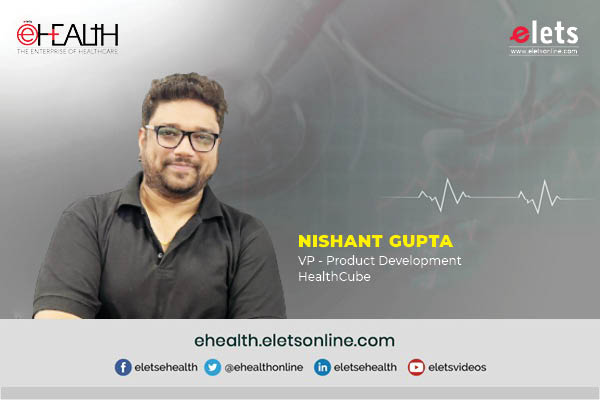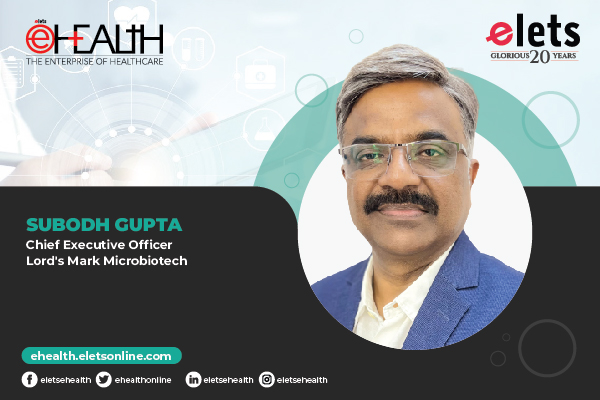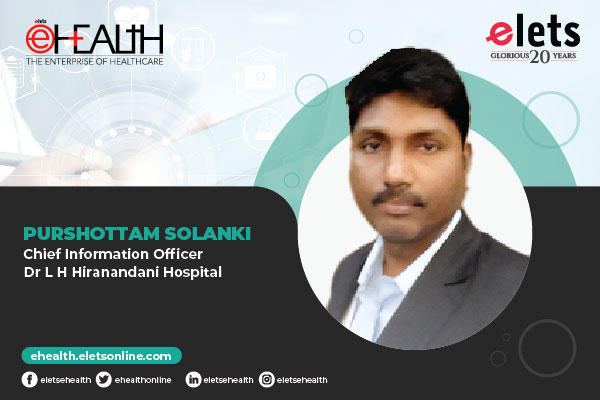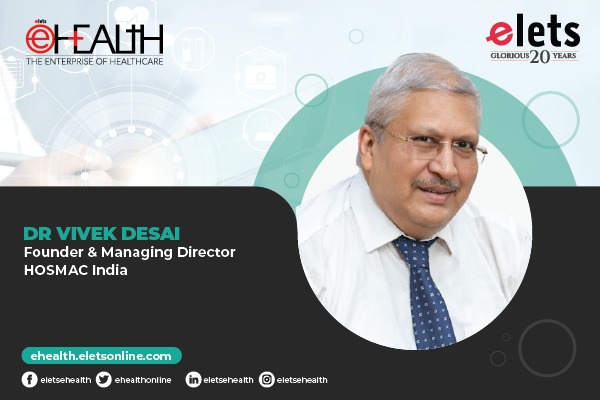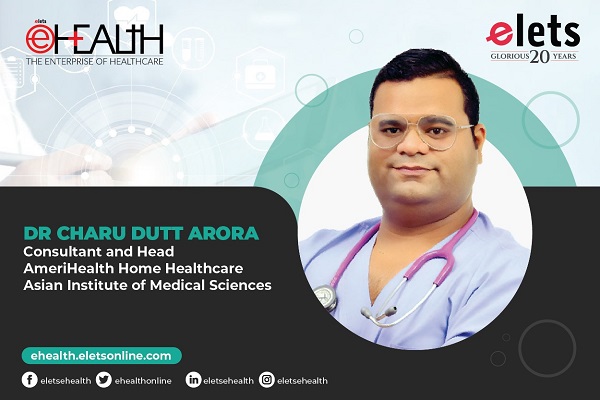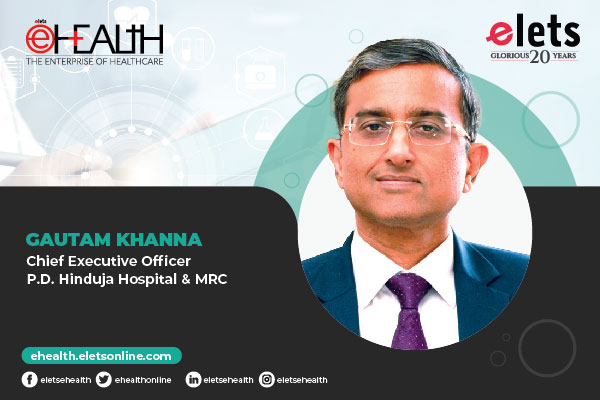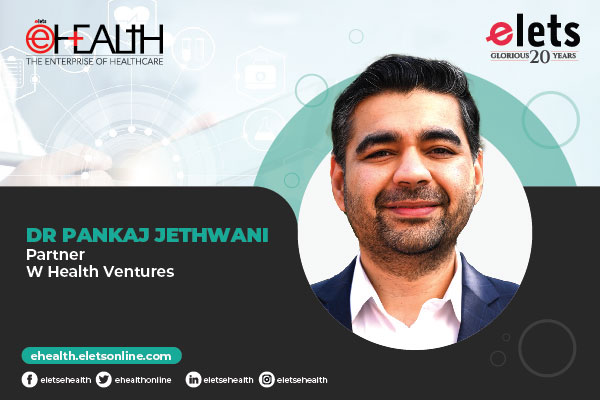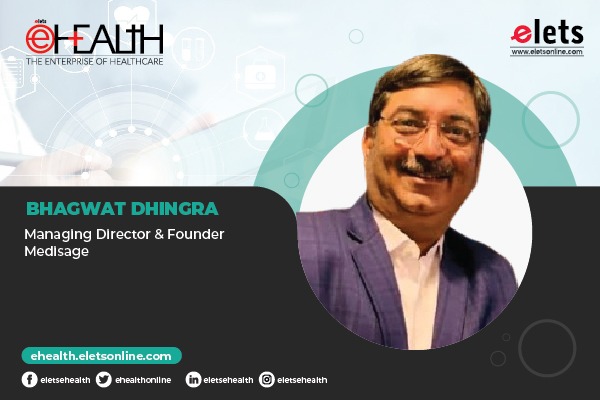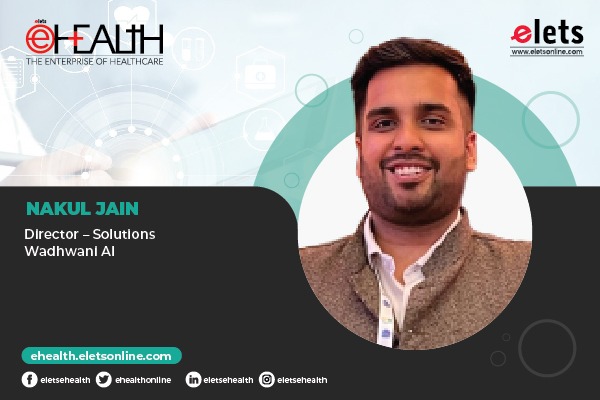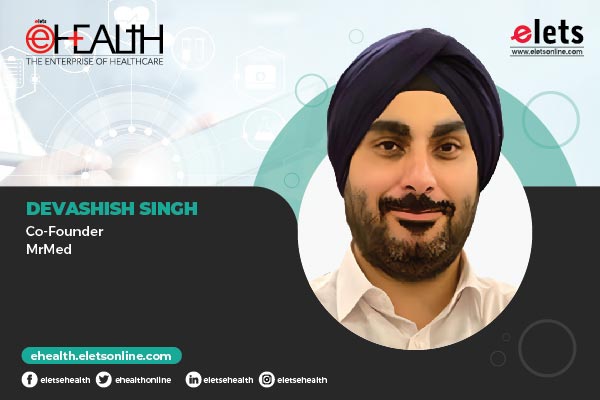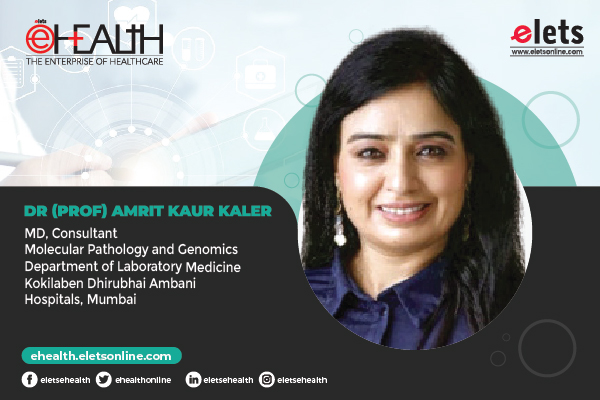“The more widespread and advanced AI tools become, the better they’ll be able to empower humans”
The healthcare industry is ripe for some major changes. Artificial Intelligence offers several advantages over traditional analytics and clinical decision-making techniques. Diving deep into the discussion Nishant Gupta, VP – Product Development, HealthCube interacted with Kaanchi Chawla of Elets News Network (ENN). Edited excerpts:
What according to you could be the growing potential of AI-based tools for healthcare delivery?

Artificial Intelligence (AI) has become the all-pervasive solution that is driving efficiencies and growth of capabilities in every field including healthcare. With AI’s ability to crunch data and analyse inputs on many parameters in realtime, it can be a game-changer in diagnostic devices. For instance, AI-based image processing tools are being developed rapidly and these can identify micro and macro structures, detect cancer, and deliver confident predictions. This technology will witness a surge in adoption in healthcare practices globally.
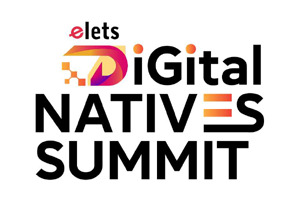
The growing digital footprint and technology trends have enhanced healthcare systems, but there still lies the need for the human workforce. Where are the gaps in curating healthcare data?
There is a fundamental misunderstanding at times that AI and digital technologies are replacements for human resources. AI is not about robot invasion of our world, where humans become redundant. On the other hand, the more widespread and advanced AI tools become, the better they will be able to empower humans. For instance, recently we are witnessing very strong digital integration in healthcare, but the source that powers AI healthcare systems is data. AI can precisely record a patient’s vitals, but only if the sensors are accurately placed on the human body. That’s where human intelligence will still be needed.

Similarly, there is no one-size-fits all treatment approach. While AI is a constantly evolving technology, there are regular improvements to help it overcome any challenges and limitations. It would only be an enabler and not a replacement for humans in healthcare.

As technological advancements continue rapidly, healthcare providers move towards more digital care options to enhance their treatment and patient experience. Your thoughts.
Digital care is a positive and empowering transformation that is redefining the scope and efficiency of healthcare. A fantastic example would be the procedure for Lumbar puncture. Nowadays, robotic arms handle spine surgery due to the precision required. Even a minor jerk of the human hand during the procedure can cause paralysis in patients. However, with robotics, it is possible to eliminate even the minute instance of the error. Robot assisted surgeries also leave fewer scars and are great confidence boosters for budding surgeons. Hence, I believe it is the right way to go forward.
AI-enabled robots can be a big boon in healthcare. How do you think it is helping doctors in their day-to-day life?
Yes, that’s absolutely correct. AI powered robotics can undoubtedly be a major transformation for the healthcare sector. The cutting-edge solutions are helping doctors/ nurses in multiple ways. There are simulation tools to help medical professionals get adequately trained on the rapid diagnosis options for the immediate treatment process.
Systems that bring together analog and digital components directly and positively benefit patients and doctors. The access to digital data for patient health history makes things a lot more transparent and enables doctors to take quicker and more accurate treatment decisions even in emergency situations. This is where a universal adoption of digital healthcare will benefit all stakeholders.
Where do you see healthcare five years down the line?
Healthcare is set to transition from being a curative to a preventive care ecosystem. Doctors will be routinely using predictive, preventive, personalised, and participative processes for diagnosis and treatment decisions. Technologies such as AI, nanotech, quantum computing, and 5G will drastically change the speed and accuracy of diagnostic systems. We will see much higher usage of point-of-care diagnostic devices to decide about treatment processes on the go.
Another significant development that is already taking place is the universal adoption of IOMT. Five years from now, we will see connected devices everywhere. Sharing of data automatically and high-end edge analytics will significantly drive real-time personalised care with an emphasis on value delivery. MedTech companies will increasingly reinvent themselves as SaaS (Software as a Service) organisations courtesy of cloud and IoMT (Internet of Medical Things) integrations and personalised medicine will be the norm.
post_id:uld_count:
Cookie not set
Value 1: 0
Value 2: 10




